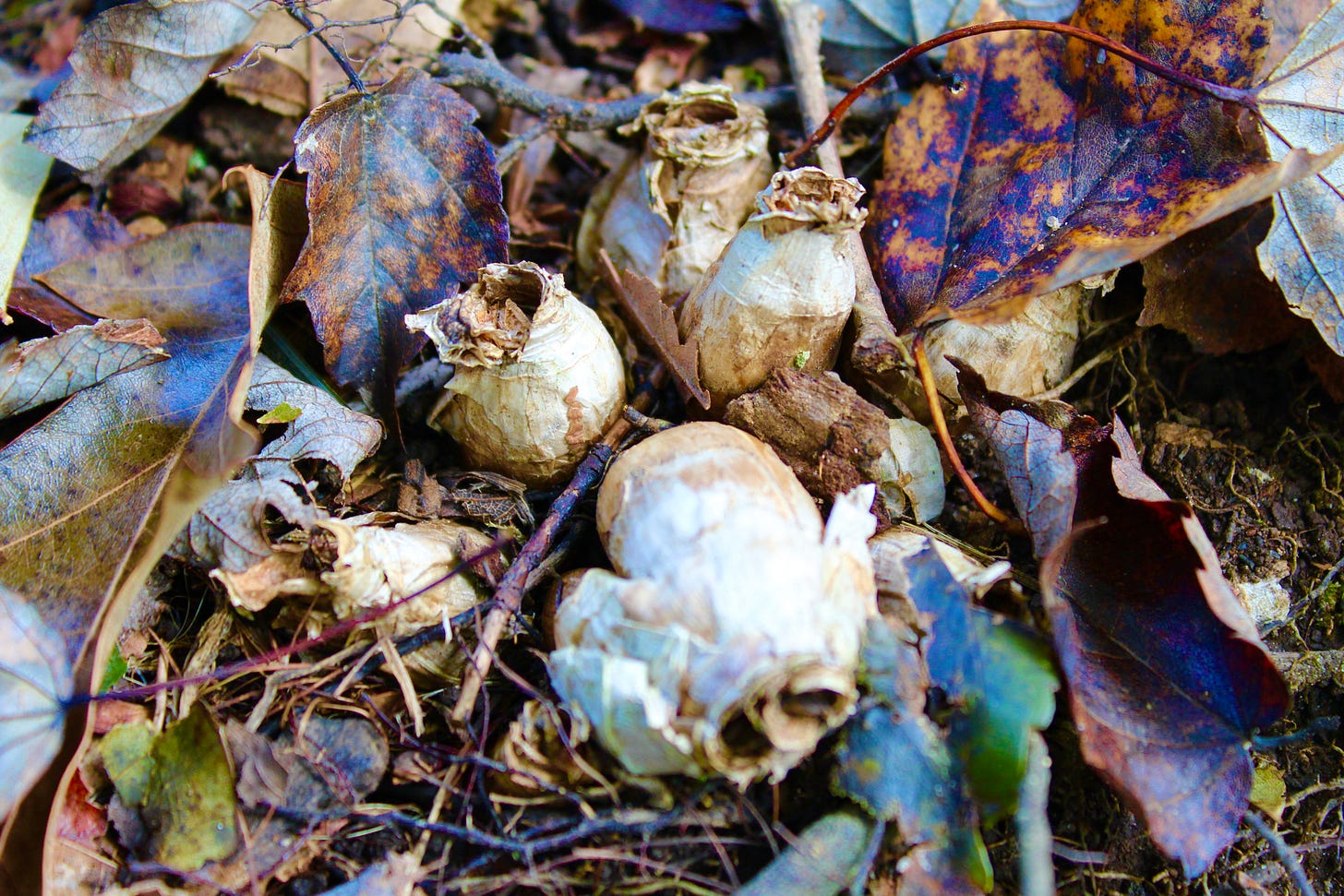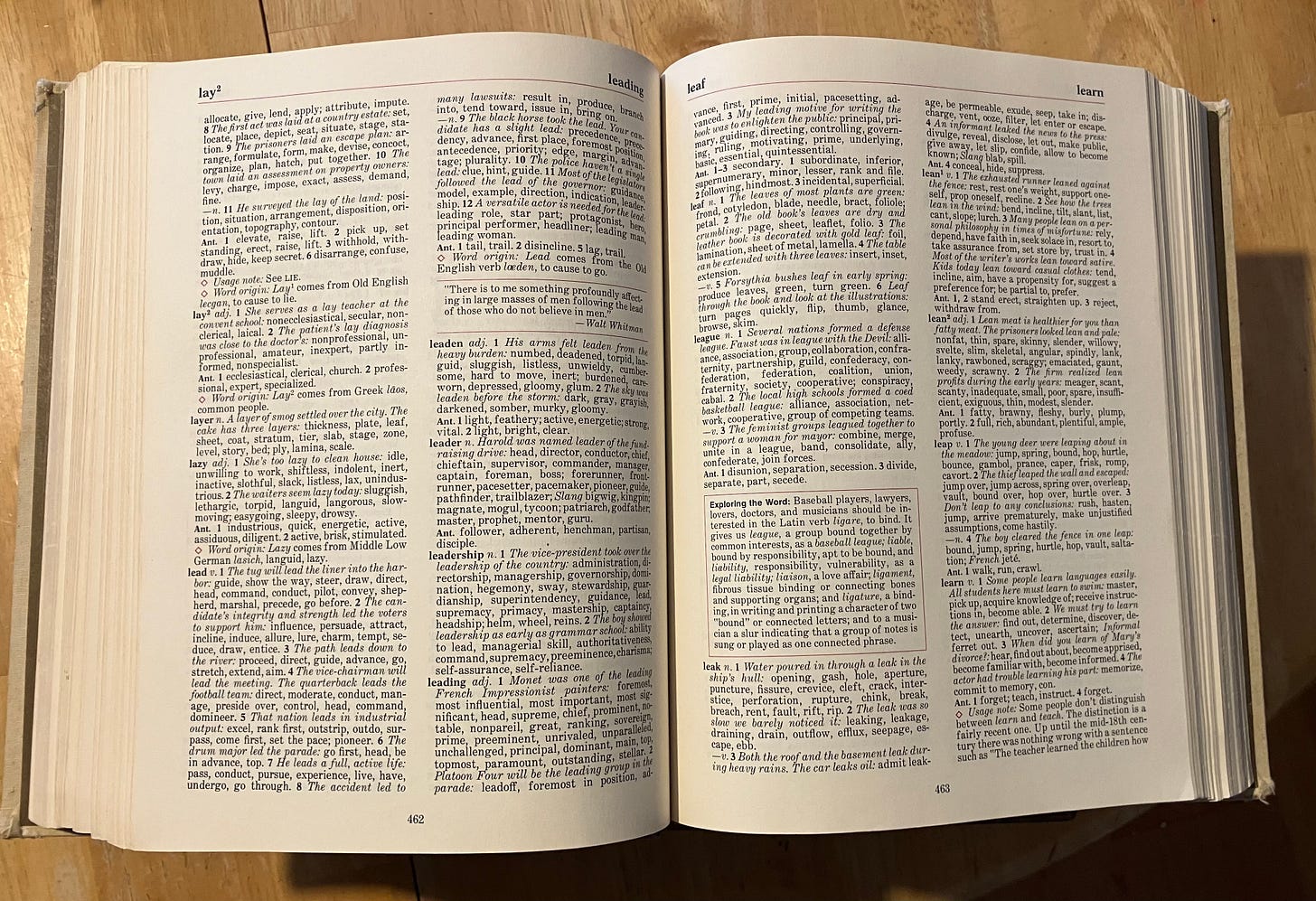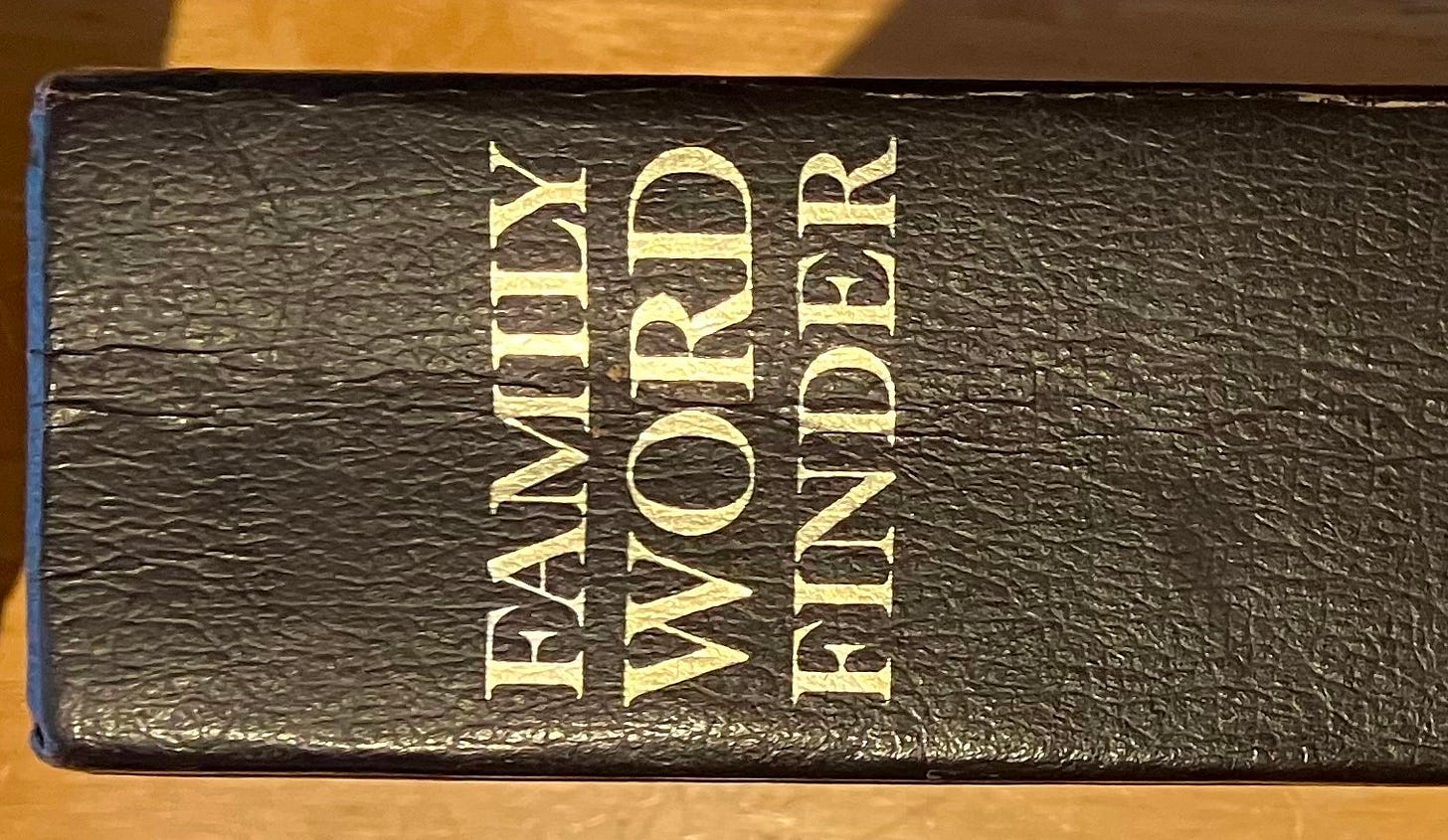It was the late 1970s and I had a denim bag I carried with me every day in seventh and eighth grade that had nothing to do with my schoolwork; I carted my 2 ½ inch thick, hardback American Heritage dictionary and my equally thick Reader’s Digest thesaurus around with me. The books were about half my size (I was a petite child, hovering close to 70 pounds then). The kids that were popular looked at me with disdain, the kids who knew me rolled their eyes, and my English teachers gave me good grades, so I didn’t care what anyone thought—I was in touch with what I considered to be my super power.
I loved school. It was, honestly, the least chaotic and nurturing place for me growing up; anyone who grew up with an addict and a high level of abuse is well aware school is sometimes the only place a child can get peace. That I was also pretty intelligent, did not hurt.
I adored my teachers, thrived on being praised for good grades and sharing my creativity, and have always been driven by curiosity. I feel like I’ve always been a sponge; knowing now of my neuro-divergency (late diagnosed ADHD) I can completely relate to the feeling of needing to know “all the things” and needing to “share all the things.” I use information not to increase my social status or job status—I use information to make life easier, better and why wouldn’t one want to pass that along and make others’ lives better? Neurotypical people, I suppose—that’s how capitalism works, right? Bah! We can do better.
We have to ask all the questions and try to find all the answers! We have to grow and share and learn and repeat—that’s what makes life so wonderful. It’s why when my kids were in their co-operative pre-school I relished every moment: they were learning about nature and communication, art and empathy and it was enjoyable for me to learn along with them and be amazed at all the ways life is enriching and resourceful.
And I refuse to give that up just because I am in my mid-50s and my children are adults now. It doesn’t matter how many degrees I have or what my plans are for formal education in the future, I always want to be learning and engaging in a curriculum that stokes my curiosity. I could give my time and money to other teachers—and I do sometimes—but there is no reason I have to rely on that: I am a teacher in my own right.
I write down the questions I have. I research to see if I can understand one or two answers or at least the bigger picture. Which, of course, leads to more questions.
Amy Stewart wrote about self-appointed artist residencies here. It made me realize that’s basically what I’d been creating for myself without realizing it. Now that I have a name and structure, I find myself being more intent-full, more mind-full of the process.
At this time, I am focusing a lot on bees. I am giving myself a bee retreat—I am asking what bees live in Virginia? In the United States? In warmer climates and colder? What gods and goddesses are connected to bees? How would a water-inoculated bee hive be discovered to have mead? Who were the women that worked with bees? What did different cultures think about bees? How did they interact with them/worship them/work with them? What are the myths surrounding bees? How many live in hives, how many live solitarily? What are their body parts called? What do their names in different languages sound like? What are the ways we humans can learn from bees? How could our social interactions and cooperative living be enriched by their models?
These questions will, hopefully, drive many poems for me this coming year. I anticipate drawing a lot of bees, hives, constructing color palates of various yellows, browns and greens (because of the sweat bees—have you seen their adorable metallic green bodies?) How many interviews, apiary blogs, books, artists and field trips I will experience! There is nothing as exciting for me as immersing myself in a subject. Carpenter bees, honey bees, bumble bees, sweat bees—I only know and can identify four species—you know there are hundreds, at least!
When I have exhausted my research on bees, my future curriculums may include bones, alchemy, the people of the seventh fire, crows and ravens, certain poets and their writing careers, lichen, moss…
What do you want to know more about? Let your curiosity carry you into places you never imagined. And definitely share the information you find. Not because people will think you are clever, not because small children will look up to you, not because it will make you money and you’ll gain status—but because you’ll be connecting to others, creating community, and re-learning all the wonderful things again.
And if you wonder what happened to my Reader’s Digest Thesaurus, it sits on my desk to this day, liberated long ago from that old denim bag. It’s a little warped and wonky, but it is a hardback book, so I’d say it’s held up really well.







Thank you for sharing your passion and commitment to curiosity and keeping learning. Your bee project sounds so rich and fascinating, look forward to following along. I read the Amy Stewart article too on being a self-appointed artist-in-residence and that has inspired my own project too!
“It doesn’t matter how many degrees I have or what my plans are for formal education in the future, I always want to be learning and engaging in a curriculum that stokes my curiosity.” A THOUSAND TIMES YES! I feel this so strongly. A someone whose whole career has been “school” (I’m a college professor), I nevertheless feel as though there’s always so much more to learn and do outside of the norms of traditional education. I’ve learned so much from you in that regard, too - namely the value of following your curiosity even when (especially when) there’s no obvious material or status payoff. I learned this from my mom as well, whose formal education stopped at high school but who never stopped learning new things - just because she was curious.